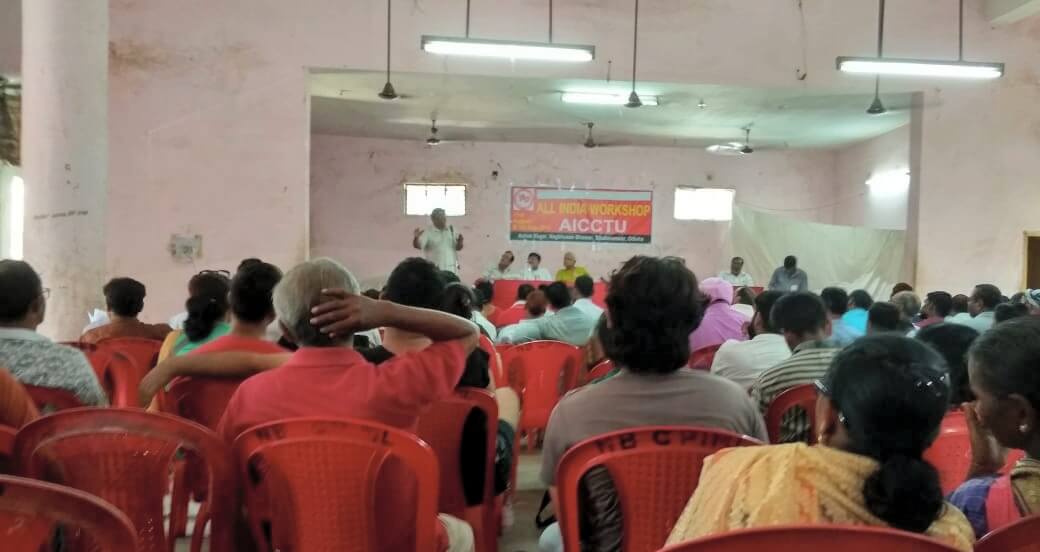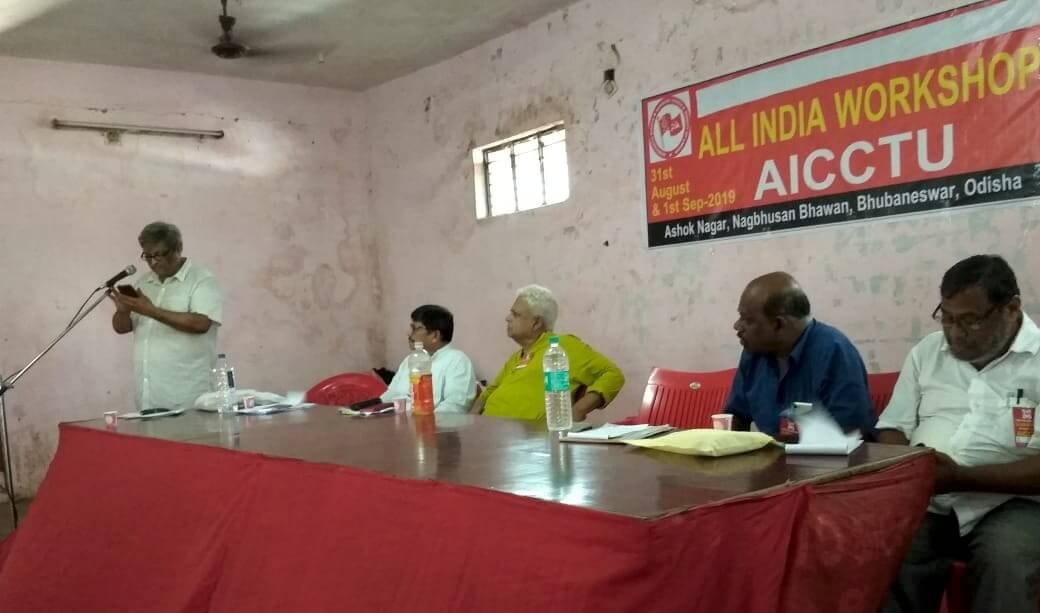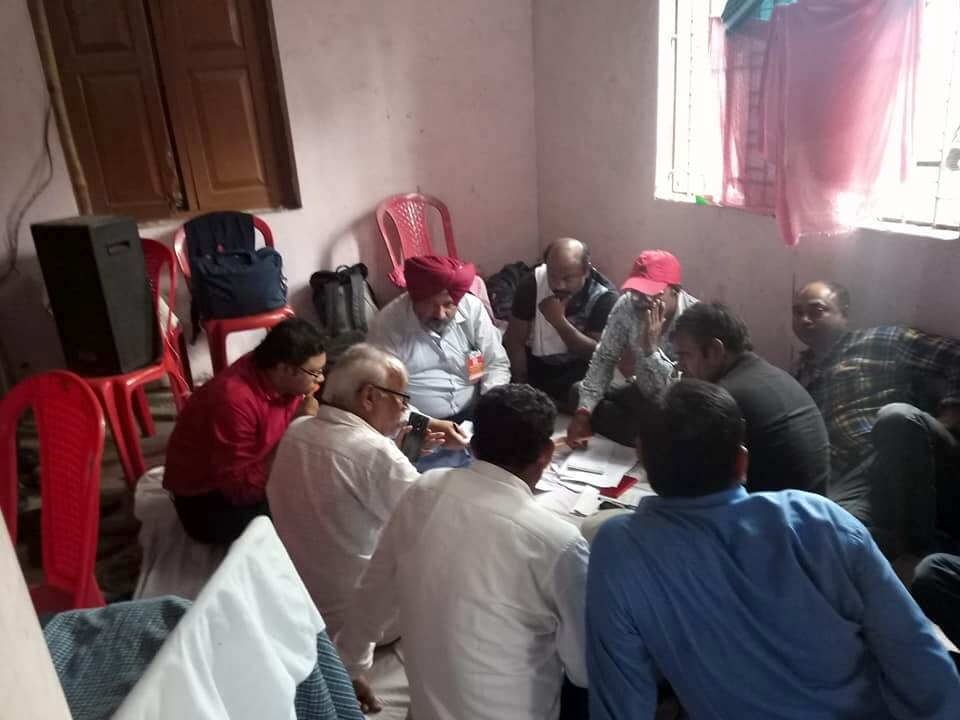AICCTU Workshop Held in Bhubaneswar

AICCTU held a workshop of young and emerging cadres in Bhubaneswar, between 31 Aug and 1 Sep 2019. This workshop attempted to address changes and challenges of the working class movement. It covered four major subjects: History of the Indian Working Class Movement (tracing major milestones as well as ideological and political struggles in the trade union movement), Challenges of the Working Class Movement Today (changing composition of labour, emerging challenges, policies and trade union approaches), Existing Trade Union Laws and Proposed Codes as well as Social Role and Politicisation of the Working Class. Resource persons such as Prof. Prabhu Mahapatra from Delhi University were invited to speak on these issues and initiate discussions. Understanding latest fascist attacks of Modi led BJP government on the working class and devising strategies to counter it was the central theme of the workshop.
The workshop set the goal of reaching out to unorganised workers in the formal and informal sectors. It discussed ways of identifying newer sections among the working class that are in turmoil and churning. It also identified new experiments and newer methods to attract the vast majority of workers while upholding the party’s class line. In order to do so, it proposed forums of various types and various roles aimed at politicization of the working class.

In the first session, Prof. Mahapatra spoke of the historic role of nationalism in the working class movement. He pointed out that working class theory needs to move beyond the concept of the ‘factory’ based ‘male’ worker. Comrade Rajiv Dimri also spoke in this session, mentioning the historic role of AICCTU in the trade union movement in terms of chartering new struggles and ideologies for the working class. The second session was addressed by Dr. Vijaya Baskar (labour reasearcher and economist from Chennai) and Comrade Vidyasagar. Dr. Bhaskar spoke of changing composition, various emerging sections, wage issues, growing unemployment, decreasing labour force participation in the working class. Comrade Vidyasagar vividly presented a detailed analysis of changes in government policies right from the Nehruvian era to the present phase of neo-liberal reforms and its connection with changing composition in workforce and emerging newer issues. In third session, Comrade Clifton D’ Rozario presented a comparative analysis of existing laws and the major drastic changes being made by the Modi-led BJP government in favour of corporates and multinationals. In the final session, participants were divided into eight groups (based on sectors of work) and asked to discuss a specific question related to working class mobilization. The discussions evoked a very good response and the method kindled and provoked lot of discussions.
In concluding the workshop, Comrade Shankar drew attention towards the issues raised during the discussions on politicization of working class. He spoke of the different sections and categories of workers. He also called for a prioritization of focus during organizing and mobilization. He suggested that new issues of basic facilities and social dignity should be raised in our struggles. Experimenting with newer forms, even if not strictly political but social, can be encouraged if that can facilitate class struggle. The workshop also decided to organize larger protests and rallies at state level as a culmination of campaign against latest attacks of Modi led BJP government at the centre.

Charu Bhawan, U-90, Shakarpur, Delhi 110092
Phone: +91-11-42785864 | +91 9717274961 E-mail: info@cpiml.org

